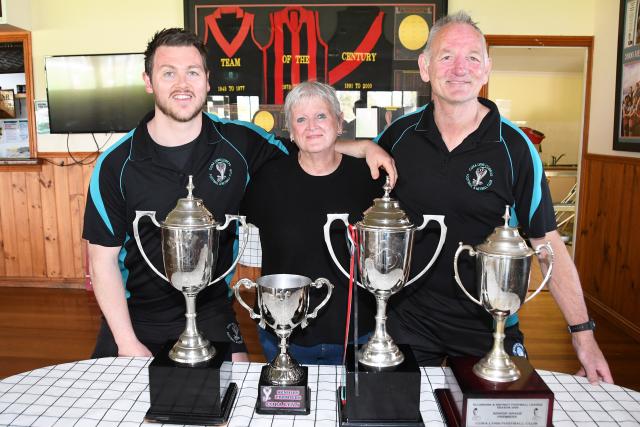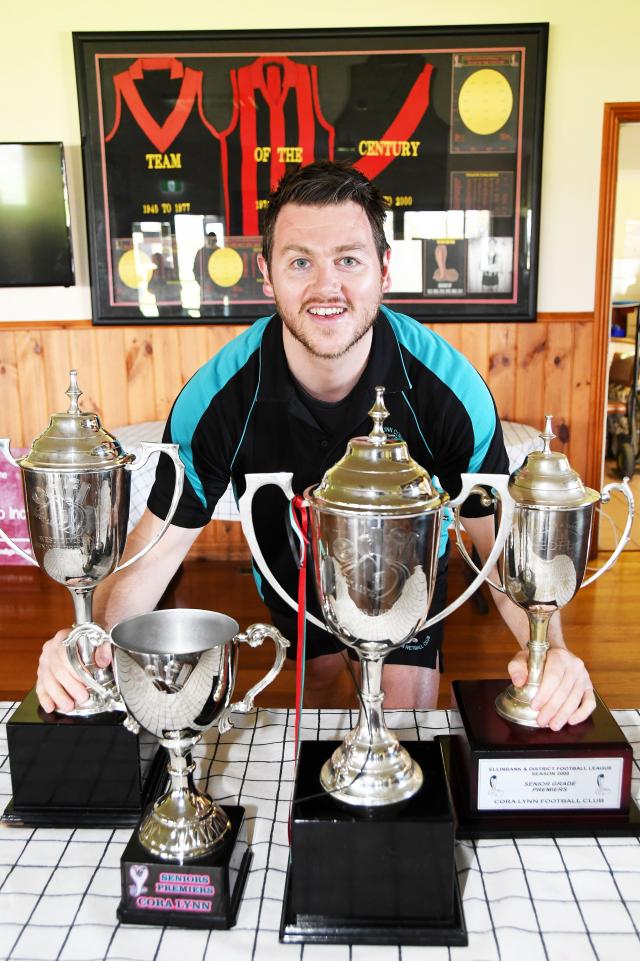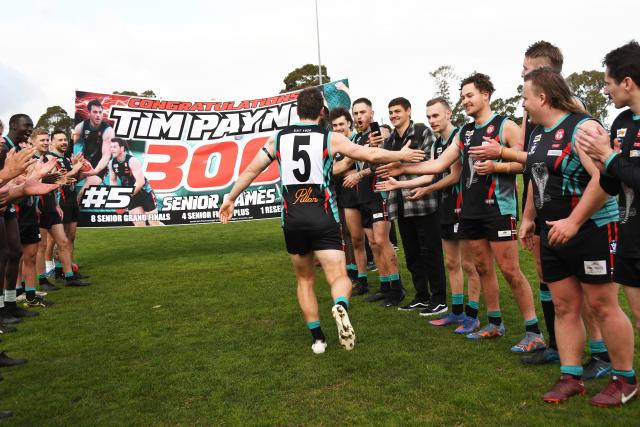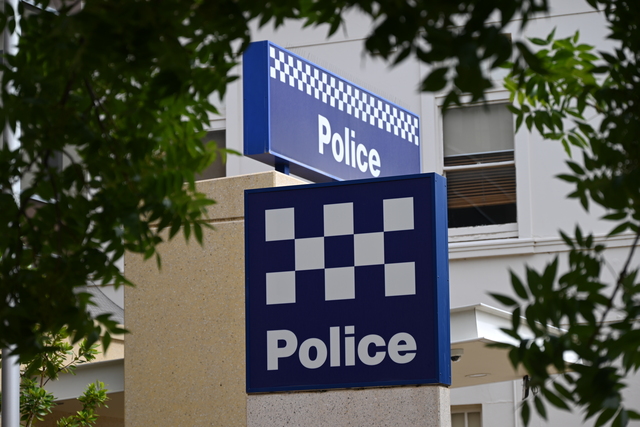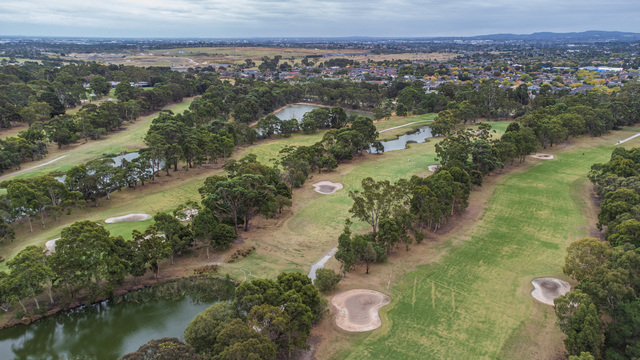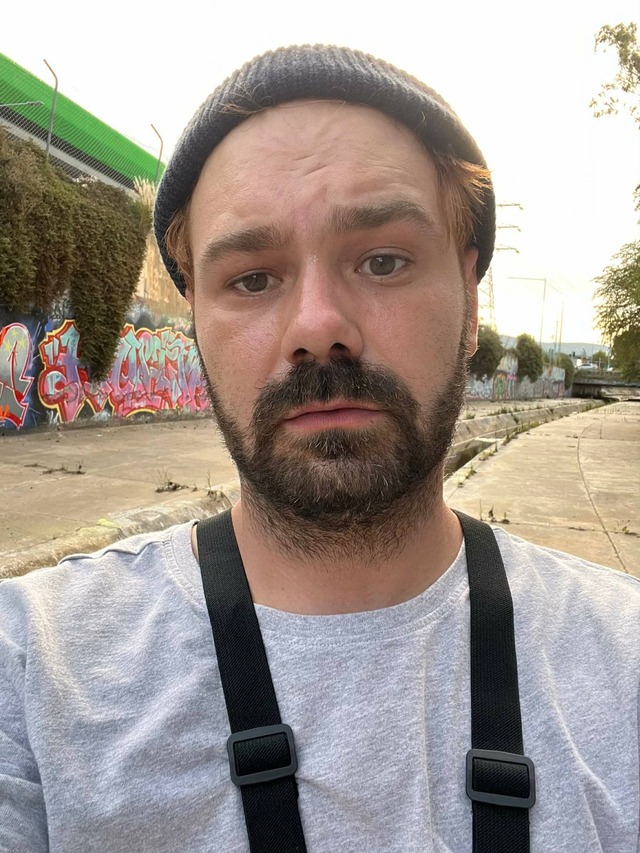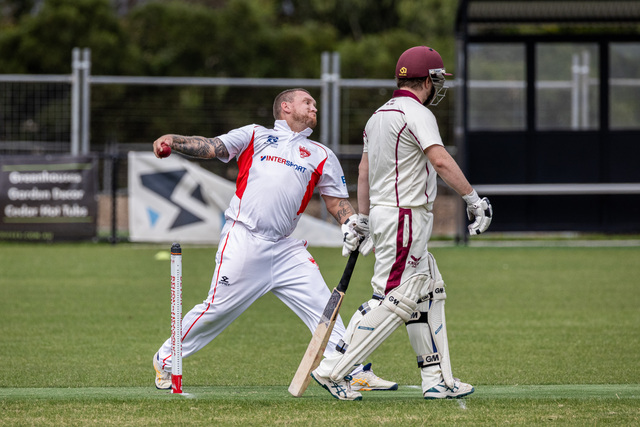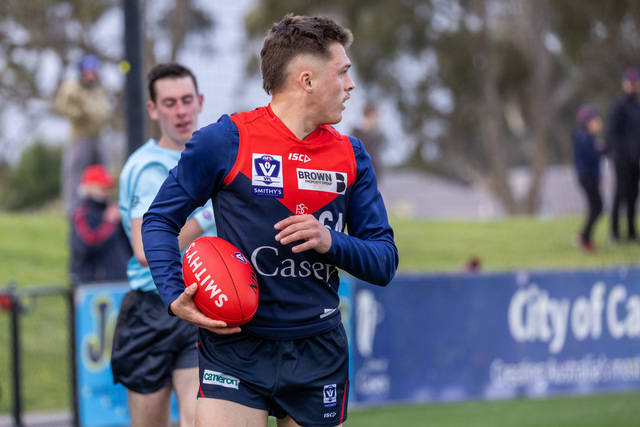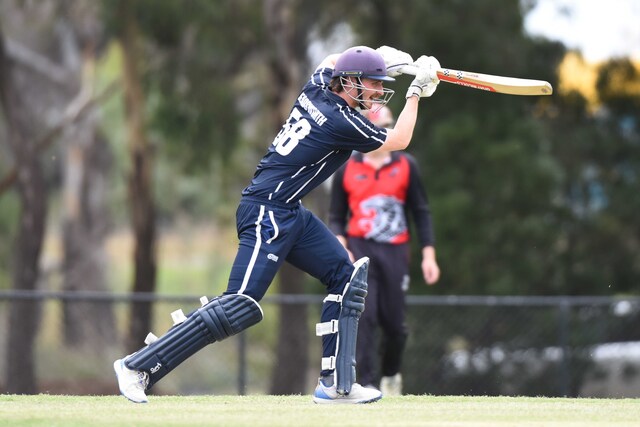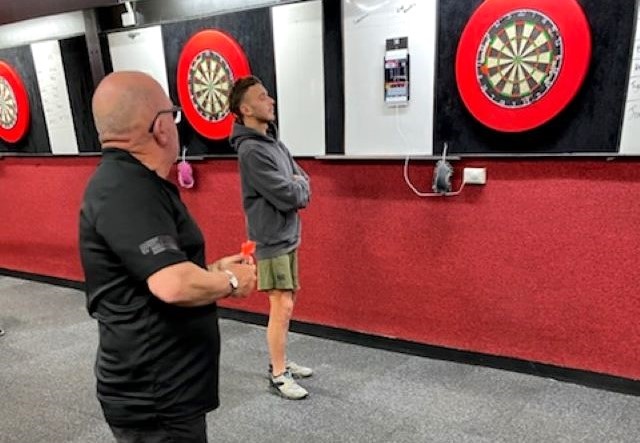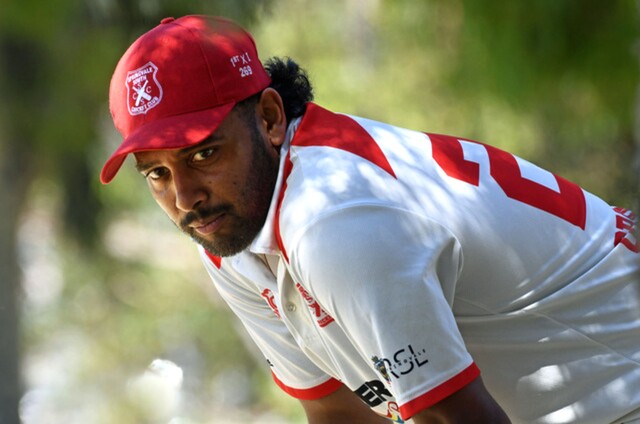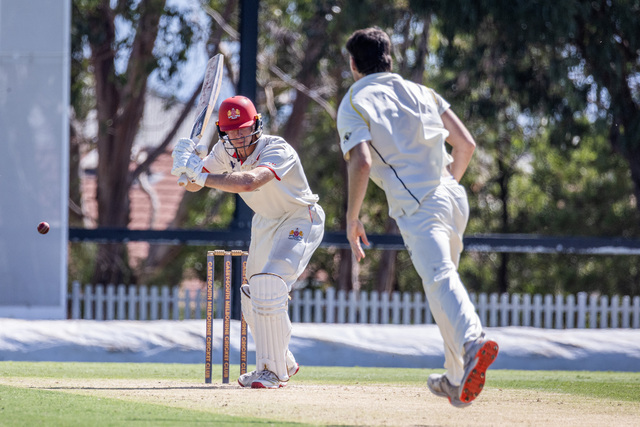Tim Payne has hoisted the premiership cup at Cora Lynn more than any other player in its history.
That simple sentence alone gives an insight into the legacy that the key defender will eventually leave behind after playing his 300th senior game against Phillip Island on Saturday.
Only Joe Lenders (1986), Chris Toner (2008), Travis Marsham (2014, ’15) and David Main (2016) have hoisted the precious silverware as Cobras coach, while Ben Collins – alongside Toner – is the only other player to have lifted the cup as captain.
Payne has done it three times before as skipper, from ‘14 to ‘16, and enjoyed the spoils of victory as a burgeoning defensive prospect in 2008.
It’s a journey that will stand the test of time.
“As captain, it’s a little bit like coaching where you’re only as good as the team in front of you, and I’ve been lucky enough to play with such exceptional players,” Payne said proudly.
“It’s just a real privilege to be the bloke that gets the opportunity to hold the cup up.
“When you think about the history of the club, and the number of players that have played, there’s only a handful of people to do it.
“To be able to do it three times, you just pinch yourself sometimes.
“There’s been some tremendous players that haven’t had that opportunity, so you have to take a moment to be grateful for it…otherwise what’s the point.”
The now 35-year-old, married to Kate, has enjoyed his time immensely at Cora Lynn.
It’s a place he has known since 1991, as a three-year-old club mascot, running out alongside his dad Ray – who was captain-coach at the time – and his champion uncle Murray, as they prepared to take on Drouin in the big dance.
Cora Lynn is a club that has truly shaped his life.
“I played my first senior game in 2005, and I’ve not only changed physically, but changed as a person since then,” he said.
“There have been so many relationships on that journey, but Cora Lynn has always been the one constant.
“The people that have been there the whole time, they shape you, you learn from them, you grow, and you end up where you are today, thanks to all those people.
“If you end up in a lucky place like I did on the weekend, it’s thanks to those people.”
Those people at Cora Lynn, that Payne expresses his love for, are also the people that have admired his training standards over the years.
But for the man himself…well it’s all born from necessity.
“I’m a very hard trainer, because I’m not skilled or talented enough not to be,” he said.
“I’m not talented enough just to coast through training so I’ve developed a pretty-strong work ethic.
“And I love it, I love getting out there, running around, and I think that’s held me in good stead.
“Cora Lynn has always been a strong club, so there’s always been a healthy competitiveness on the training track.
“I like to challenge myself and challenge other guys and really get the best out of the group, and myself.
“Older guys can just accept that the ageing process is going to slow you down, or you can really push against it and play good footy for as long as you can.
“Look at Brendan Kimber, Andy Soumilas, Shane Brewster, those guys just keep working hard and showing what you can do as an older player.”
Payne’s motivating force is to not let people down.
“I take a lot of pride in my own performance, but once you’ve built relationships with the guys in your team, there’s just a sense of duty and obligation to give it your best,” he said.
“You see how hard people work, and how much they sacrifice to play football.
“Whether it’s spending their own money on physio, taking days off work to look after themselves, people commit so much to local football that you just can’t look them in the eye if you don’t do the same.
“I find that’s what really drives me, watching people sacrifice and at least matching that commitment.”
Payne believes Cora Lynn is the perfect place to show that commitment, despite not having the bells-and-whistles facilities of other clubs.
“When you strip it back…what do you really need to be successful,” he points out.
“Really it comes down to attitude, and how hard you’re willing to work.
“Out on the training track, as long as you’ve got a footy, and a couple of cones, you can work as hard as anyone.
“If you’re willing to work, you don’t need a whole lot there.
“We know why we’re there, we’re not there to have the most beautiful changerooms…we’re there to try and get better and win games of footy.”
Being captain of a successful football club does come with its challenges, both on and off the field, with leadership, guidance, and the ability to execute under pressure all key ingredients of a great leader.
Payne believes a balanced viewpoint is vital, in order to not be daunted.
“I think you have to have a healthy dose of perspective,” he explains.
“Local football is a great thing, it brings a lot of people a lot of happiness, but at the end of the day it is country football.
“There’s a bigger purpose to it of course, being part of a great community and things like that, but there’s a lot more important things in the world.
“There are times when the pressure is on.
“Playing down back you’ve got a job and a responsibility, but I think you just need to see those things as a badge of honour.
“You’ve been given an opportunity to help your team to win, and it you execute and do your job well, if I lead well, it’s going to give our team a better opportunity to win.
“You have to jump at opportunities, because if you shy away from it…you’ve already lost half the battle.
“Looking at those opportunities in a positive way, instead of being daunted, puts you in the best mindset to be successful.”
That positive mindset paved the way for Payne’s biggest moments in the sport, from both an individual and team perspective.
“From 2009 to 2013, we lost two grand finals and three preliminary finals, and 2014 was my second year as captain,” he said.
“I was lucky enough to play on the opposition coach (Matt Shorey), five times during the year, and kept him goalless on those five occasions.
“It was something that I was really proud of, to help give us the opportunity to win.
“To win that grand final, going away, by 70-odd points, was just great, and to make a valuable contribution was even better.
“In 2008, whether I played or not, they would have won pretty easily, but to know that I’d done a job in 2014, really contribute to it, that’s a great sense of achievement on Saturday night when you’re sitting back having a beer.
“2015 we went through undefeated, so to go nearly a year and a half undefeated was also pretty special.
“Those two things are the things I’m most proud of as a player.”
Another facet he is proud of is guiding the younger players as they come through.
“Being at the club for a long time, you get the chance to see guys develop, grow, and come up,” he said.
“Jaxon Briggs, he came to the club as a 15-year-old and worked really hard and got into the senior team.
“I played with him in a senior premiership, then he went off to Casey, and now he’s back as captain of the club.
“You see the journey from start to finish, you see all the hard work and feel proud of someone like that.
“I’m not conceited enough to think I played a huge role in that, but maybe a few things I said, or advice here or there helped, and helped guys like that end up where they are today.
“Lachlyn Peluso, he’s another one that came through as a junior, and to run around next to him each week, seeing him do an unbelievable job, that’s what makes me proud.
“Maybe being able to show these young guys what senior footy is like, and what the level is like, and then to see them embrace it, take on the challenge, and then to play the type of footy you can only dream about it, that’s what it’s all about at this age, I think.”
Payne’s legacy at Cora Lynn has also been enhanced by the number he wears on his back.
Just four players, Frank Duiker, Terry Dillon, Jeremy Duiker and Payne, have worn the number-5 jumper in the last 53 years…and combined for more than 1100 games at the club.
“I was aware of it when I took the number five off Jeremy Duiker, because he was the guy that my cohort coming up through juniors really idolised,” Payne said
“He set the standard and we always looked up to him.
“I attended Frank Duiker’s funeral earlier this year, and the number five jumper was mentioned in the eulogy, so you can’t escape the face that it means a lot to a small group of people at the club.
“That number five jumper at Cora Lynn carries something, and you have to act and play accordingly.”
So, what does the future hold for the now 300-game veteran?
“I’m still having fun, so I’m going to play next year, and If I’m at work on a Tuesday afternoon and still looking forward to training, and waking up Saturday and still looking forward to games, then I’m in.
“If that changes, that’s when you probably know that the writing is on the wall.
“I’m enjoying it, so I may as well keep squeezing juice out of it while I can.”

